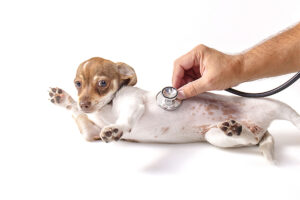
Managing pain after your dog’s surgery is critical for your own peace of mind as well as the well-being of your beloved companion.
Seeing your beloved furry friend undergo surgery can be a stressful and emotional experience. While the procedure is often necessary for their health and well-being, the post-operative period can be challenging, especially when it comes to managing their pain. Just like humans, dogs can experience discomfort and need proper care to aid in their recovery.
Follow Your Veterinarian’s Instructions
First and foremost, it’s crucial to adhere to your veterinarian’s recommendations regarding pain management. They will prescribe medication tailored to your dog’s needs based on the type of surgery performed, their size, and other individual factors. Make sure you understand the dosage instructions and any potential side effects of the prescribed medications.
Provide a Comfortable Resting Environment
Create a cozy and quiet space for your dog to rest and recuperate after surgery. Use soft bedding and keep the area free from loud noises and distractions. Limit their movement to prevent any strain on the surgical site and encourage them to relax and heal.
Use Ice Packs or Cold Compresses
Applying ice packs or cold compresses to the surgical site can help reduce inflammation and alleviate pain. Wrap the ice pack in a towel and gently place it on the area for short intervals, making sure not to apply it directly to the skin to avoid frostbite.
Monitor Your Dog’s Behavior
Keep a close eye on your dog’s behavior and watch for signs of discomfort or distress. These may include whining, panting, restlessness, decreased appetite, or reluctance to move. If you notice any concerning symptoms, contact your veterinarian promptly for guidance.
Administer Pain Medication as Directed
It’s essential to give your dog their pain medication as prescribed by your veterinarian. Do not attempt to adjust the dosage or switch medications without consulting them first. Consistency in medication administration is key to managing your dog’s pain effectively.
Offer Gentle Massage
Massaging the surrounding muscles of the surgical site can help alleviate tension and promote relaxation. Use gentle, circular motions with your fingertips, being careful not to apply too much pressure directly on the incision area.
Encourage Low-Impact Activities
While your dog needs plenty of rest during the initial recovery period, gentle, low-impact activities can help maintain their mobility and prevent stiffness. Short, supervised walks on a leash and light stretching exercises can promote circulation and aid in their overall recovery. Make sure you understand any activity restrictions recommended by your veterinarian, and give them a call if you’re ever unsure about an activity to ensure that it’s safe for your pup.
Provide Nutritious Meals and Plenty of Water
Proper nutrition is essential for healing and recovery. Ensure your dog has access to fresh water at all times, and feed them a balanced diet rich in lean protein, healthy fats, and essential nutrients. You can consult your primary veterinarian for dietary recommendations tailored to your dog’s specific needs if you’re concerned about their current diet.
Schedule Follow-Up Appointments
Keep track of your dog’s progress and attend any follow-up appointments scheduled by your veterinarian. These check-ups allow them to assess your dog’s healing process, adjust their medication if necessary, and address any concerns or complications that may arise.
Trust Maryland Veterinary Surgical Services With Your Companion’s Health
Your companion’s health is important, and the team at MVSS is ready to provide the best care possible for your furry family. We are dedicated to combining comprehensive exams and assessments with informative and honest discussions of your companion’s care. Once we have worked with you to decide on the best course of action for your dog, our professionals will use their surgical expertise to work towards the goal of giving your companion an active and pain-free life. We are proud to serve loyal companions in Catonsville and Baltimore. To learn more about our services, give us a call at 410-788-4088 or visit us online. For more information and tips for pet health, follow us on Facebook and Pinterest.
